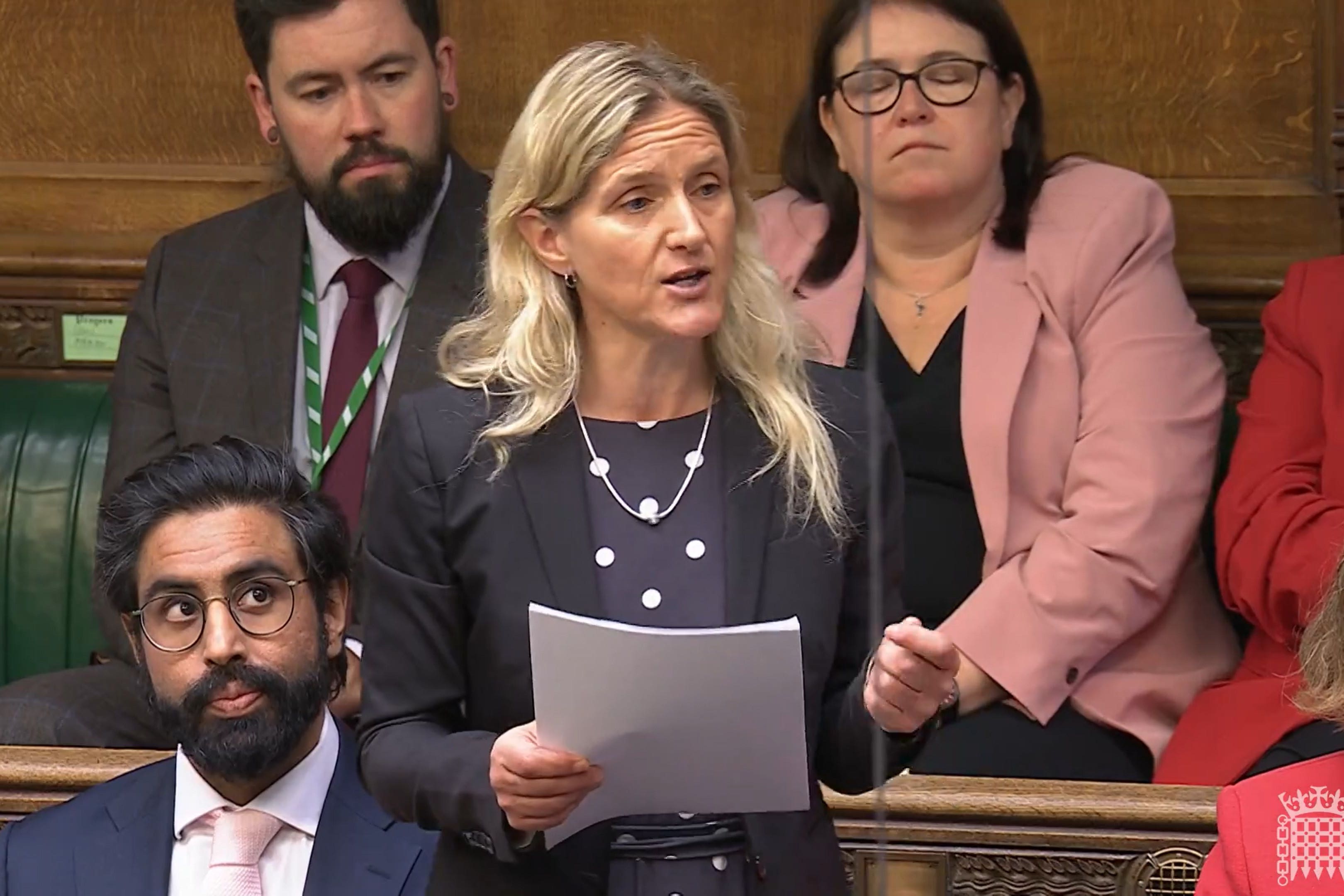A late amendment to Kim Leadbeater’s assisted dying legislation has been tabled to include a ban of the controversial so-called “death pods”.
The move by Tory MP Greg Stafford comes as more than 1,000 doctors have urged MPs to vote against the assisted dying bill when it returns to the Commons, claiming it is a “real threat to both patients and the medical workforce”.
MPs are set to vote on the Terminally Ill Adults (End of Life) Bil on Fridayl, which would allow terminally ill patients with six months left to live to end their lives, is due to be voted on for a final time on 20 June.
Mr Stafford, who has opposed the legislation throughout its process through parliament, laid his amendment just days after it was revealed that a pro-euthanasia activist who was arrested following the death of a woman using the world's first so-called suicide pod has died.

Dr Florian Willet, 47, was allegedly the only witness present when a 64-year-old American woman took her own life using the Sarco suicide pod device in a forest in Switzerland last September.
The Sarco suicide pod's inventor Philip Nitschke told the BBC that Dr Willet himself died by assisted suicide in Germany.
The controversial device is a 3D-printed portable machine that floods with nitrogen gas at the press of a button.
Mr Stafford told The Independent: “The inventor of the Sarco death pod has stated that he would like to introduce his gas pods to this country. The assisted dying Bill, as drafted, would allow the Sarco pod to come to these shores.
“If accepted, my amendment would remove this possibility by requiring that regulations prohibit any device used for the self-administration of gas.
“We know that the public is uneasy with the Sarco pods. I very much hope that the Bill sponsor takes the opportunity to accept my amendment and makes it clear that she doesn’t support the introduction of these suicide pods in the UK.”
A spokesman for Ms Leadbeater declined to say whether she would support the amendment, noting: “I think it’s highly unlikely to be accepted for debate or vote if it hasn’t gone down yet but that’s a decision for the Speaker.”
But it follows more criticism of the bill in a letter to MPs from NHS doctors who expressed “serious concerns”, arguing that “this bill is not the answer".
While they acknowledged that there must be a debate on end of life care, they argued too little evidence has been heard from doctors, people with disabilities and other marginalised groups.
"This bill will widen inequalities, it provides inadequate safeguards and, in our collective view, is simply not safe,” they wrote, saying the bill is “deeply flawed”.
The letter has been signed by geneticist Sir John Burn, Sir Shakeel Qureshi, who received a knighthood for his work in paediatric cardiology, Professor Aileen Keel, the former deputy chief medical officer for Scotland, and Baroness Finlay, a professor of palliative medicine and member of the House of Lords.
In its current form the bill, which applies only to England and Wales, would mean terminally ill adults with only six months left to live could apply for assistance to end their lives, with approval needed from two doctors and the expert panel.
Last month, MPs approved a change in the bill to ensure no medics would be obliged to take part in assisted dying.
Doctors already had an opt-out, but the new clause extends that to anyone, including pharmacists and social care workers.
The letter, seen by Sky News, goes on to say: "Vulnerable patients are at risk of coercion with women, victims of domestic abuse, and the elderly at particular risk. People who struggle to pay for heating or care or wish to preserve their assets for their children are at high risk of choosing to die if the option is available and the alternative is more difficult."
Meanwhile, Professor Colin Rees, a member of the Royal College of Physicians working group on assisted dying, said the legislation will “have very profound consequences for the future and many doctors are really concerned that members of parliament are not hearing the views of the medical profession".
"We don't think it's a bill that is safe, that protects patients, protects families, and protects the medical workforce,” he added.

But Kim Leadbeater, the bill’s sponsor, said assisted dying must be legalised to avoid terminally ill people acting out of desperation or making “traumatic” trips to Switzerland.
Last month, she told the Commons she has heard “hundreds of stories from people who have lost loved ones in deeply difficult and traumatic circumstances”, adding: “If we do not vote to change the law, we are essentially saying that the status quo is acceptable.”
The warning from the doctors came after TV medic Hilary Jones warned that medicine will go “back to the Dark Ages” if the proposed legislation is voted down.
The GP, often seen on ITV’s Good Morning Britain and the Lorraine show, said he would help a terminally ill patient to end their life if the law was changed, describing the practice as “kind and compassionate”.
Dr Jones said medics are currently “looking over their shoulders because of the legal repercussions of the law” as it stands. Encouraging or assisting suicide is currently against the law in England and Wales, with a maximum jail sentence of 14 years.
Asked about the potential significance if the law changes, Dr Jones said: “It will relieve healthcare professionals who deal with terminal illness.
“There are wonderful people who are caring and compassionate, who just live in fear of their actions being misinterpreted, of being accused of wrongdoing, and because of that fear, people at the end of life are often undertreated.
“People are looking over their shoulder because of the medications they’re using or the doses they’re using, it means that patients aren’t getting the best palliative care that they could have.”







